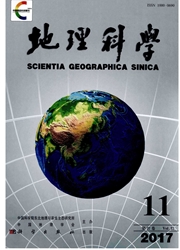

 中文摘要:
中文摘要:
在积极实践循环经济的探索之中,各地在产业集中区建立由共生企业群组成的生态产业园区成为重要的行动之一,并已经取得了显著的成效。整合已有的生态产业园区发展规划思路,以循环经济理论和产业生态学原理为指导,通过园区的产业组织、空间规划、环境管理、公用辅助设施集成和文化认同等五个方面,构建宁波化学工业区在循环经济领域的概念性发展框架,并提出相应的发展策略。
 英文摘要:
英文摘要:
In the past few years, a growing number of eco-industrial parks (EIPs) which are constituted by symbiotic industrial clusters are planned and developed in the industries agglomerated areas in China. It is one of the most important local actions for exploring the practice of circular economy. Based on the theories of circular economy and industrial ecology, the paper provides a framework of EIP development integrating the existing planning of EIPs. There are five key dimensions summarized in this conceptual model: symbiotic industrial network construction, creation. Chemical spatial planning, environmental management, integrated infrastructure design, and cultural identity Furthermore, the development framework was devised and applied in the case study analysis of Ningbo Industry Zone. Some strategies and suggests for the EIP development are provided.
 同期刊论文项目
同期刊论文项目
 同项目期刊论文
同项目期刊论文
 Corporate Networks, Value Chains, and Spatial Organization: A Study of the Computer Industry in Chin
Corporate Networks, Value Chains, and Spatial Organization: A Study of the Computer Industry in Chin 期刊信息
期刊信息
